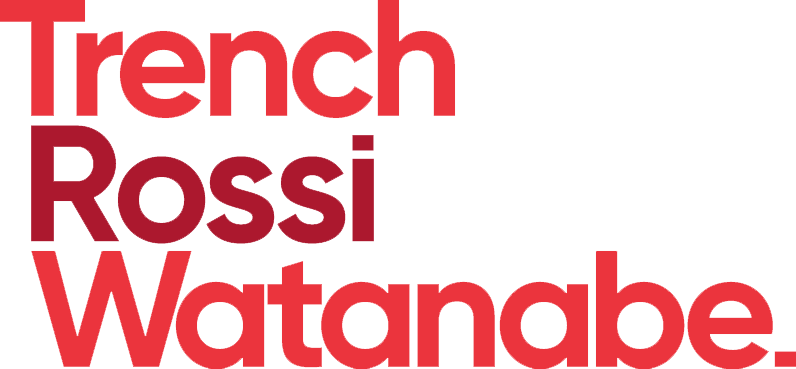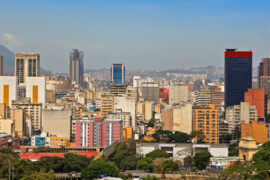In brief
On 19 May 2022, Federal Decree No. 11,075/2022 (“Decree”) was published, establishing the National System for Reduction of Greenhouse Gas Emissions (SINARE) and the procedure for developing the Sectoral Plans for Climate Change Mitigation.
The Decree states important definitions, which are as follows:
(i) Carbon credit: a financial, environmental and transferable asset representing the reduction or removal of one ton of carbon dioxide equivalent, which has been recognized and issued as a credit on the voluntary or regulated market. The ‘certified emission reduction credit’ corresponds to the carbon credit that has been registered with SINARE.
(ii) Methane credit: a financial, environmental and transferable asset representing the reduction or removal of one ton of methane, which has been recognized and issued as a credit in the voluntary or regulated market
(iii) Greenhouse gas emissions offset: a mechanism by which a person or legal entity, of public or private law, offsets greenhouse gas emissions generated as a result of its activities through its own removals accounted for in its greenhouse gas inventory, or through the acquisition and effective retirement of certified emission reduction credit
(iv) Carbon stock unit: a financial, environmental and transferable asset representing the maintenance or storage of one ton of carbon dioxide equivalent, which includes all means of carbon storage, except for greenhouse gases present in the atmosphere
The Sectoral Plans for Climate Change Mitigation
According to the Decree, the Brazilian Emissions Reduction Market is an environmental management mechanism and an operational instrument for the Sectoral Plans for Climate Change Mitigation, which aims to act as a tool for the implementation of emission reduction commitments through the use and transaction of certified emission reduction credits.
The Sectoral Plans for Climate Change Mitigation will establish targets for the reduction of anthropic emissions and removal by sinks of greenhouse gases, which are measurable and verifiable, considering the particular features of the sectoral agents. The Ministry of the Environment, the Ministry of the Economy and the sectoral-related ministries, if any, will be responsible for proposing the Sectoral Plans for Climate Change Mitigation.
Within 180 days of the publication of the Decree, which may be extended for an equal period, specific sectors may present their proposals for establishing curves for reducing greenhouse gas emissions, considering the long-term goal of climate neutrality stated in the Nationally Determined Contributions (NDCs). The sectors previously foreseen in the National Policy on Climate Change (PNMC) are the generation and distribution of electricity, urban public transport and interstate transport systems for load and passengers, manufacturing and durable consumer goods, fine and base chemical, paper and cellulose, mining, civil construction, health services and agriculture and livestock sectors.
SINARE
SINARE will operate as a single digital center for registering greenhouse gas emissions, removals, reductions and offsets, and for trading, transferring, transacting and retiring certified emission reduction credits. The ‘SINARE certification standard’ comprises a set of rules with the minimum criteria for monitoring, reporting and verifying greenhouse gas emissions or reductions accepted for registration in SINARE.
The certified emission reduction credits may be used for compliance with greenhouse gas emission limits or be traded with the appropriate SINARE registration.
An official act from the Ministry of the Environment and Ministry of the Economy will define the rules for (i) registration; (ii) SINARE’s standard of certification; (iii) accreditation of certifiers and custody centers; (iv) SINARE’s implementation, operation and management; (v) public and accessible registration, in a digital environment, of projects, initiatives and programs for generating certified emission reduction credits and offsetting greenhouse gas emissions; and (vi) the criteria for compatibility, when technically and economically feasible, of other assets representing the reduction or removal of greenhouse gases with the carbon credits recognized by SINARE, as proposed by the body or entity responsible for these assets.
Additionally, there will be SINARE instruments: (i) the integrated registry of greenhouse gas emissions, reductions and removals, and of acts of trade, transfers, transactions and retirement of certified emission reduction credits; (ii) mechanisms for integration with the international regulated market, which should be established; and (iii) the registry of the inventory of greenhouse gas emissions and removals.
The certified emission reduction credits are the emission reductions and removals registered in SINARE in addition to the targets established for the sectoral agents. These credits can be used for compliance with defined greenhouse gas emission limits or be traded with the proper registration in SINARE.
In addition, the following can be registered in SINARE without the need for generating certified emission reduction credits: carbon footprints of products, processes and activities; carbon from native vegetation; carbon in the soil; blue carbon; and carbon stock unit.
Our Environment, Consumer Affairs and Sustainability Team is available to provide further clarification on the subject.
Read the alert in Portuguese here.
*****

Trench Rossi Watanabe and Baker McKenzie have executed a strategic cooperation agreement for consulting on foreign law.






